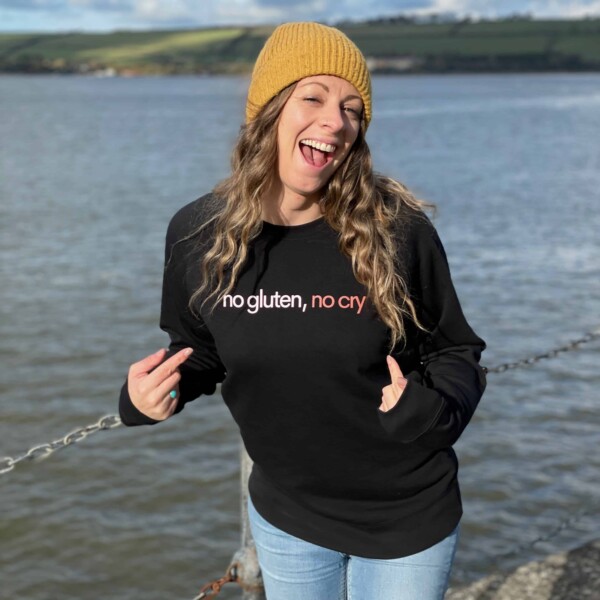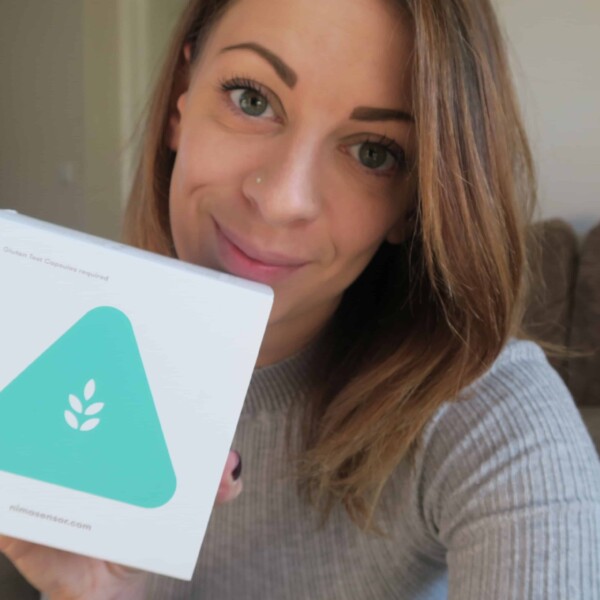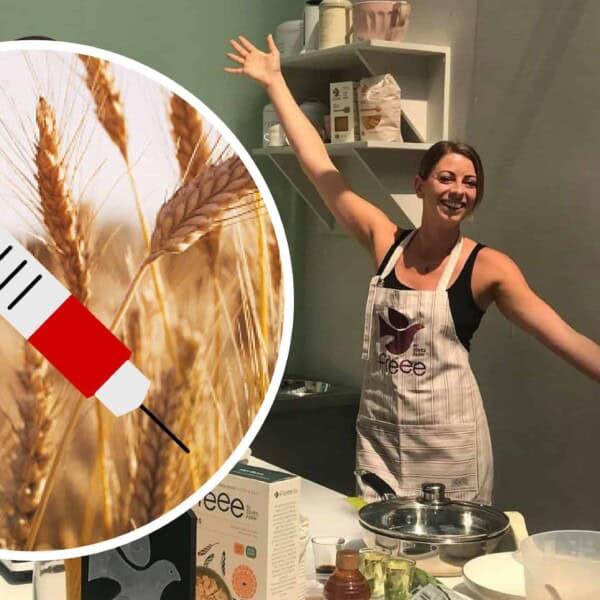This post may contain affiliate links for which I earn a small commission at no extra cost to you. For more info, check out my Disclosure Policy. Thank you for your support!
So whilst currently researching an article I’m writing (I will post details once it’s publish hopefully December time!) I came across an interesting fact from Coeliac UK.
According to a survey run by the charity in 2009 on 1,600 of it’s members, nearly 60% were previously diagnosed with IBS.
Other members were also previously diagnosed with anemia without testing for the cause (also nearly 60% of respondents) as well as anxiety or depression, chronic fatigue, ME, gallstones or even hypochondria.
Even worse, the survey highlighted that 23% of respondents had visited their GP for 11 years or more before finally being diagnosed. Nearly a third also said that they though their GP’s knowledge of coeliac disease was either poor or very poor.
So what can be done?
At the same time the survey was being launched, NICE (National Institute of Health and Clinical Excellence) issued a guideline on coeliac disease which, as a result, should see more people tested for the condition.
The guideline details on the recognition and diagnosis of coeliac diease, and also identifies some specific symptoms and associated problams such as Type 1 Diabetes.
Sarah Sleet, Chief Executive of Coeliac UK said: ‘It is too early to tell if the NICE guidelines are improving diagnosis rates but as a charity we are receiving around 1,000 new member requests a month from people who have just been diagnosed.”
She added:“In order to prevent years of misery for patients and needless waste of hard pressed NHS resources, we need a target for diagnosis of the disease in the Quality and Outcomes Framework (QOF) of the GP contract which has been recognised as an important lever in changing GP practice. The idea was recently rejected by NICE but if we do not see a significant improvement in the current rates of diagnosis, Coeliac UK will be pressing again for its inclusion.”
What did you think of your GP’s knowledge of Coeliac disease? How long were you waiting until you were diagnosed? If you have a story about your coeliac experience you want to share then please comment below or email on: [email protected]
There is, in my opinion, still a long way to go until proper diagnosis of coeliac disease is common. I myself was told my tests were not completely conclusive, though from my experience with eating gluten by accident since my diagnosis, I definitely have coeliac disease!
So share your stories too and I’ll definitely be looking further into this matter!














With increased awareness it could well improve the speed of diagnosis. However, there’s an underlying understanding that many of the severe cases of coeliac have been diagnosed, and it’s the ‘mild’ ones which now are more typical, and these clearly more easily slip through the net. It could be that the majority of undiagnosed coeliacs out there have barely any symptoms, or don’t consult doctors if they do. I think there’s a danger that this could lengthen diagnosis times overall. On the other hand, more media talk could make them wonder whether they have it.. It’s so difficult to predict!
All the best, Alex
Hi there! Great blog!!
Okay, so here’s my story….I’ve had bloating, wind, running to the toilet etc for years. It was only when my symptoms worsened last year that I thought I must have something seriously wrong with me. It started getting really bad last July and continued until around September time. I couldn’t leave the house, it was that bad. I started taking the srongest Immodium tablets, just to get out and go to my job. I was in a real state. I have alway been really slim, but I really started to lose a lot of weight, so I decided enough was enough and I went to the doctors. I saw four different doctors who all told me I had IBS. One told me I should ‘eat more fibre’ ie wheat breakfast cereals etc. Obviously, that didn’t help! One asked me what I was worrying about and that I looked like a person who watched their weight! He agreed on my persistence to do a blood test for IBS, but there is no test for this.
It was only when a work mate (who’s sister had just found out she had coeliac disease) suggested I buy a test online, which I did. It was a positive result which I took to the doc’s. The doctor I saw was actually very helpful and told me to cut out wheat to see how I got on until I received the results of the blood test which the nurse carried out. The blood test, surprise surprise, was positive.
The next doctor I went to see asked me how I knew it was coeliac disease. Well, I thought that was his job to tell me, but there you go!!
After a horrible endoscopy and bone density scan, I have osteopenia and will be on calcium and iron tablets for the rest of my life. All I can say is thank goodness for the online test I bought, as I could’ve ended up in a much worse state.
I’m now nearly a year on and still haven’t put on any weight, but I feel so much better. The food I get on prescription is really great and I love to cook, bake and adapt recipes anyway, so life’s pretty good now!
If people are displaying symptoms like the ones I had, then a simple blood test for coeliac disease is a no brainer really!!
Kepp up the blog – it’s great!!
Adele X 🙂
I don’t eat Gluten despite consistantly being tested and showing that I am not a ceoliac. I choose not to eat it because my father has mulitple sclerosis and we have tried everything to make him better. We got him to cut out gluten and it made him so much less wobbley. I cut out wheat as I had the ceoliac gene but not ceoliac (still don’t really get that) and to support my dad. I don’t miss wheat I just miss the convenience of a sandwhich or cake. I think everyone would benifit from cutting out wheat. ps i really like your blog, its easy to read and since I found it I have been reading from the beginning until now when I stopped to post.
Alice – that’s great to hear that cutting out gluten has helped your father’s MS so much! Thankyou for your lovely comments – I am glad you have found my blog useful! I feel I have neglected it a little recently but will make sure there is more content very very soon!! Convenience is defintely what I miss the most – although with Waitrose and M&S bringing out GF sandwiches it has made things a little easier – lets just hope more stores jump on board! X